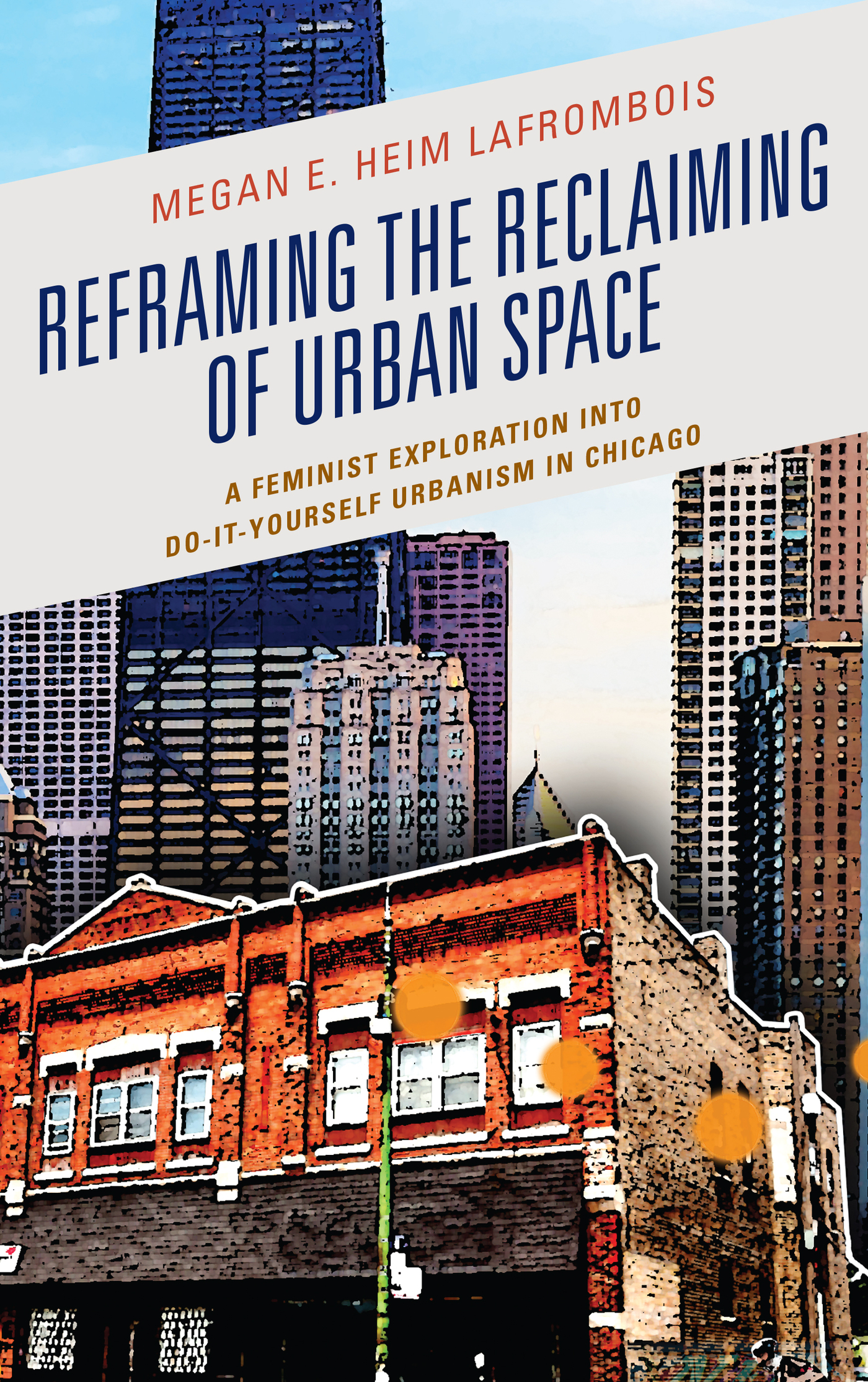Reframing the Reclaiming
of Urban Space
Reframing the Reclaiming
of Urban Space
A Feminist Exploration into
Do-It-Yourself Urbanism in Chicago
Megan E. Heim LaFrombois
LEXINGTON BOOKS
Lanham Boulder New York London
Published by Lexington Books
An imprint of The Rowman & Littlefield Publishing Group, Inc.
4501 Forbes Boulevard, Suite 200, Lanham, Maryland 20706
www.rowman.com
Unit A, Whitacre Mews, 26-34 Stannary Street, London SE11 4AB
Copyright 2018 by Lexington Books
All rights reserved. No part of this book may be reproduced in any form or by any electronic or mechanical means, including information storage and retrieval systems, without written permission from the publisher, except by a reviewer who may quote passages in a review.
British Library Cataloguing in Publication Information Available
Library of Congress Cataloging-in-Publication Data
Library of Congress Cataloging-in-Publication Data Available
ISBN 9781498548694 (cloth : alk. paper)
ISBN 9781498548700 (electronic)
 TM The paper used in this publication meets the minimum requirements of American National Standard for Information Sciences Permanence of Paper for Printed Library Materials, ANSI/NISO Z39.48-1992.
TM The paper used in this publication meets the minimum requirements of American National Standard for Information Sciences Permanence of Paper for Printed Library Materials, ANSI/NISO Z39.48-1992.
Printed in the United States of America
Acknowledgments
There are many individuals, who have offered ongoing support and wisdom throughout this books creation, to whom I am indebted. Huge gratitude is due to Brenda Parker, Janet Smith, Norma Moruzzi, Andy Clarno, Nik Theodore, and John Betancur from the University of Illinois at Chicago for their ongoing mentorship and encouragement. Recognition is also due to Marcelo Cruz and Ray Hutchison from the University of WisconsinGreen Bay, for their support in the early years of my career. Countless colleagues and co-workers, fellow conference presenters and participants, and anonymous reviewers have been instrumental, along with the amazing editorial and production staff at Lexington Books. They are too numerous to name, but of particular note are my former co-workers at Heartland Alliance, who continue to fight the good fight each day; my fellow colleagues at the University of Illinois at Chicago; and my new colleagues at Auburn University. Acknowledgment is due, in particular, to DeAndra Navratil (OConnell) from Auburn University for her research and editing assistance. Lastly, thanks goes out to my family and friends, who unwaveringly believed meMom, Dad, Marilyn, Mark, Jill, Heather, Hef, Kobus, Cyndi, Paul, Tony, David, Lizzy, Jourdain, Mike, Keeley, Derek, Jessica, Mike, Ann Marie, Joel, Norine, Emily, and Yunmi. And lastly, sincere love and appreciation goes to Christopher for his dedication, support, and knack for making sure I dont lose my sense of humor.
Preface
An interest in social justice issues, as well as community-based and participatory forms of urban planning, led me to the concept of do-it-yourself (DIY) urbanism. Having worked as a resource and community development planner for eight years, focusing on ending homelessness in Chicago, I was dissatisfied with traditional market-based and state-based approaches to urban planning and community building, as they seemed to evade the root causes of social injustices. Often, at the nonprofit organization where I worked, our desire to provide much-needed progressive programming and services was constrained by a lack of funding or support. Our programming was sometimes too liberal or controversial for mainstream funders to consider. When funded, the conservative parameters and restrictions that funders placed on our activities oftentimes limited our work. Additionally, we had the concerns of the surrounding community in which we were located to consider and manage. Serving some of the most vulnerable members of societymen and women who are experiencing long-term homelessness and both mental health and substance use issuesour agency, like many others in the community, had to maintain a delicate balance between providing social justice-informed, human-rights-based services and ensuring we were not creating fissions within the larger community. This increasingly gentrified community, which we have been located in for decades, was not always conformable living alongside social service agencies and the individuals that relied on their services.
Despite the challenges of working in this complex and power-laden environment, I witnessed countless ways that individuals tried to make the city work for them. In working alongside a number of formerly homeless individuals I was continually struck by the sophisticated ways in which they, when they were experiencing homelessness, navigated space and the larger homeless service system, creating new spaces for themselves and patching together what they needed from a massive, fragmented system. This led me to wonderwhat if individuals were able to decide for themselves how best to address their needs and then create, with the necessary tools and resources, their own solutions? What if governments, funders, and even social services agencies stopped trying to dictate the proper solution and instead let those most directly affected by a given issue decide how to address it? It seemed like DIY urbanism was the place to start this query.
Broadly, DIY urbanism refers to grassroots and citizen-led interventions that reclaim, re-adapt, and repurpose urban spaces through small-scale, direct-action interventions (Deslandes 2013; Douglas 2014; Finn 2014; Iveson 2013; Shepard 2014). DIY urbanism goes by many names, including tactical urbanism, pop-up urbanism, temporary urbanism, experimental urbanism, and insurgent urbanism, to name a few. I use the term DIY urbanism, given its broad and encompassing nature. While DIY urbanism encapsulates a wide variety of different activities, its main goal is to reclaim and repurpose urban spaces, often outside formal urban planning structures and systems. The activities tend to be small-scale and place specific (Douglas 2014). Emily Talen (2015) traces the origins of DIY urbanism back to the beautification and reform work of the late 1800s, whereas others trace it to the 1950s creative resistance work of the Situationalist International (Barnard 2004; Shepard 2014). Despite its many names and disputed origins, DIY urbanism has grabbed the attention of planners, policymakers, and residents alikeincluding my own.
When I started digging into the literature on DIY urbanism, my excitement waned. Very few scholars were addressing issues of deep-seated inequality and social relations, such as the lack of basic shelter and food. Instead, they were primarily focusing on architectural and physical design-based interventions, often related to cultural consumption. Activities such as pop-up cafs, shops, and libraries; temporarily reappropriating streets and parking spaces for non-automobile-based activities, such as Park(ing) Day and Critical Mass bicycle rides; and improving public spaces, often vacant, with art exhibits, including graffiti art, and community gardens are all well-documented DIY urbanism activities. When cities and other formal institutions engaged with DIY urbanism, the picture started to look a bit like the repackaging of creative class-politics (i.e., economic development policies aimed at attracting and catering to young, creative professionals, employed in so-called creative industries, who have high levels of education and social capital [Florida 2003]). There was little attention paidintentionally or unintentionallyto how these activities are entrenched in various contexts and processes, such as neoliberalizing political agendas, and what their impacts are on communities, such as gentrification. Most importantly, very few were talking about issues of race, class, or gender.
Next page
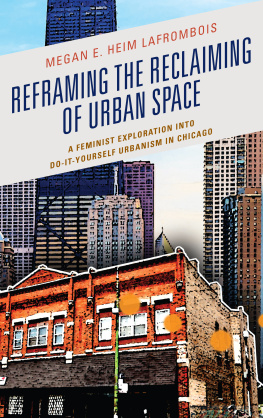
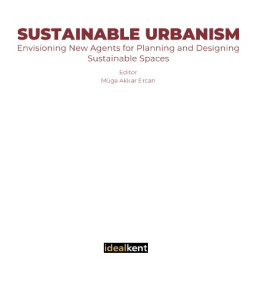

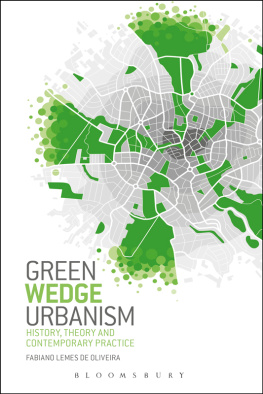
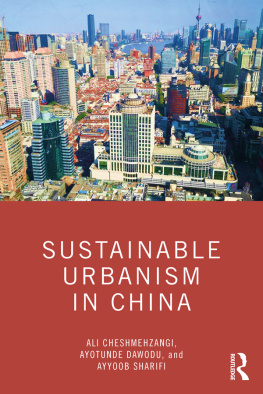
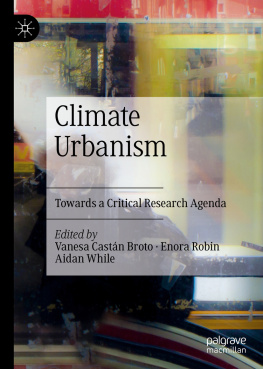
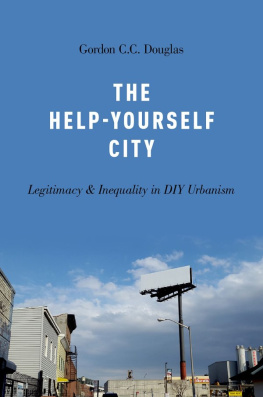
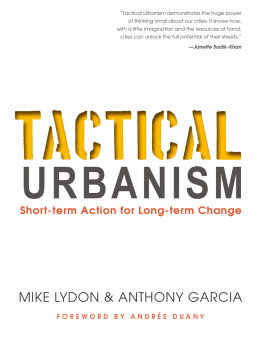
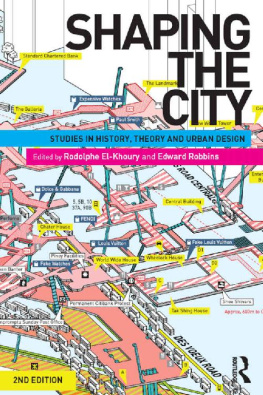
 TM The paper used in this publication meets the minimum requirements of American National Standard for Information Sciences Permanence of Paper for Printed Library Materials, ANSI/NISO Z39.48-1992.
TM The paper used in this publication meets the minimum requirements of American National Standard for Information Sciences Permanence of Paper for Printed Library Materials, ANSI/NISO Z39.48-1992.